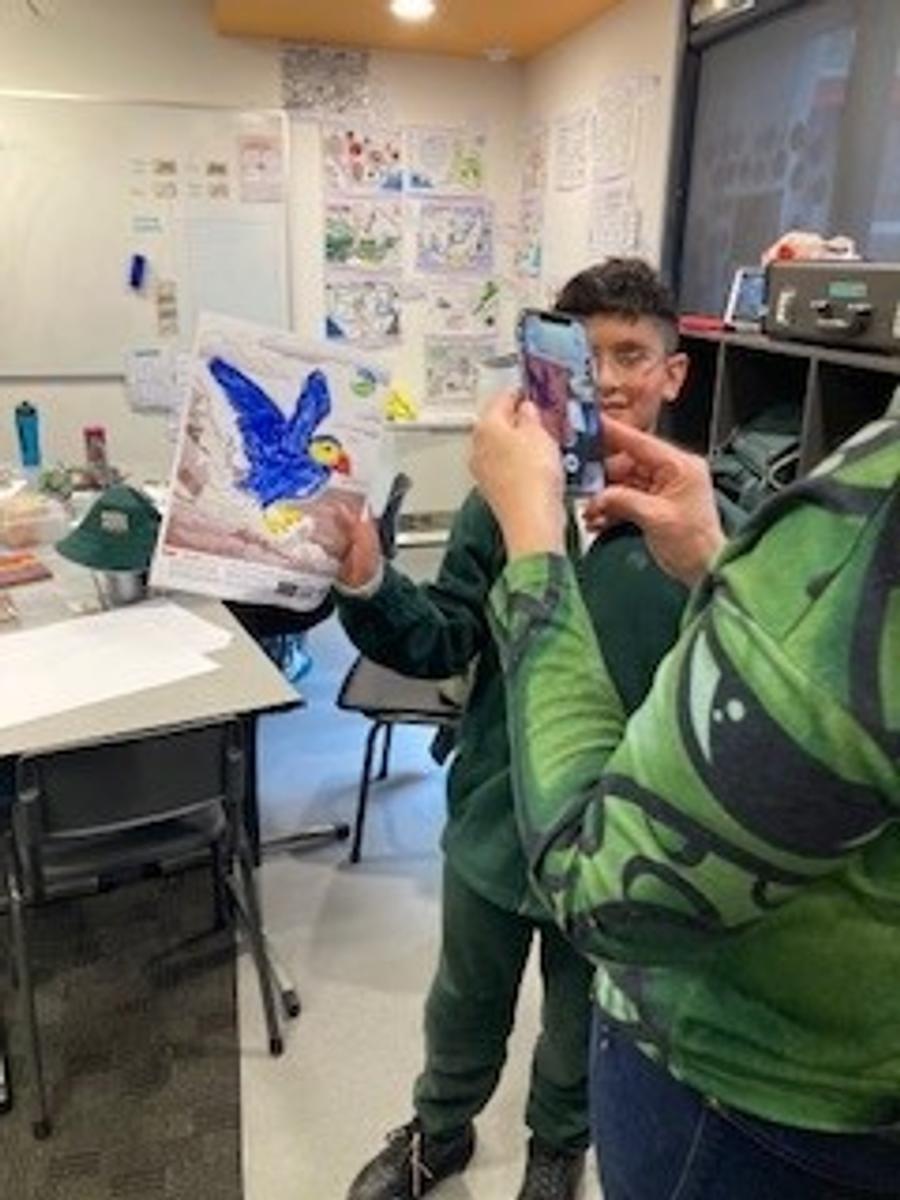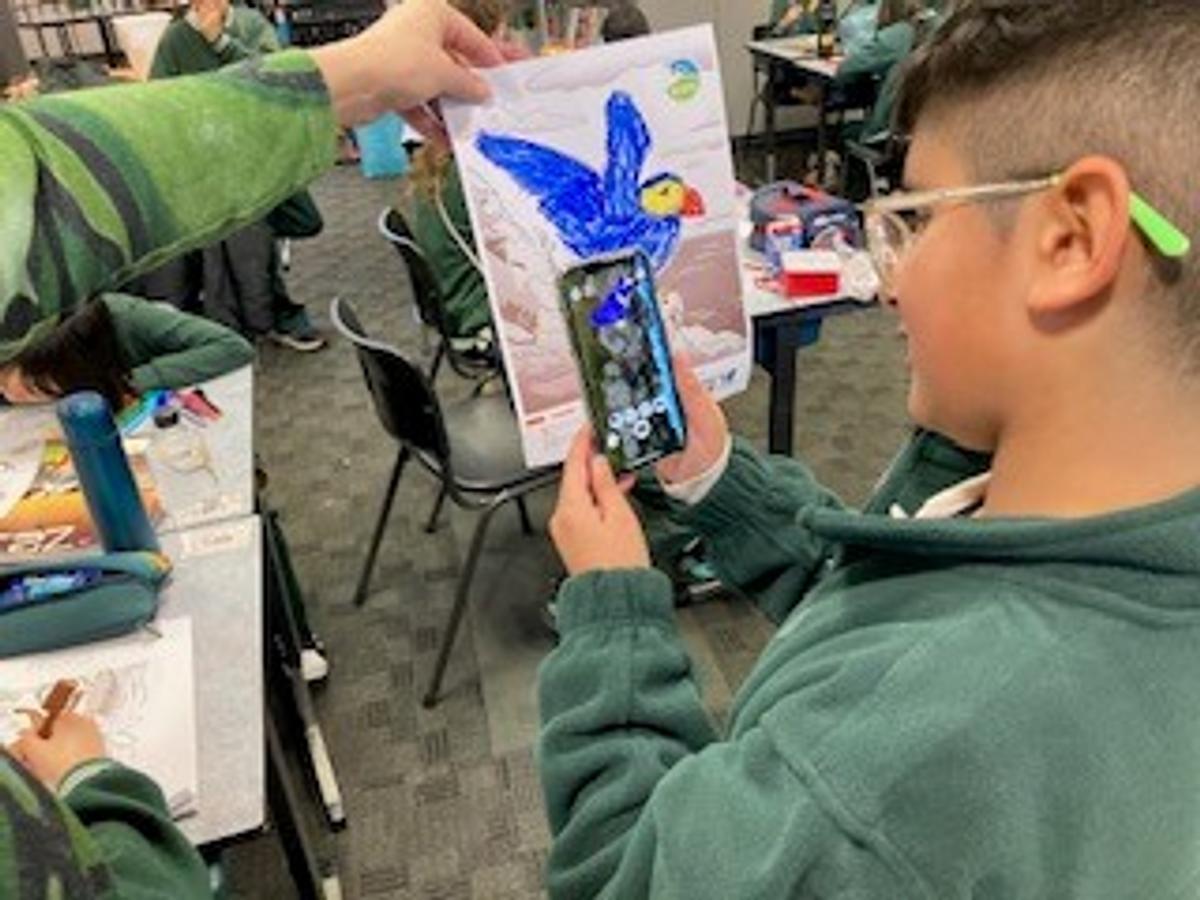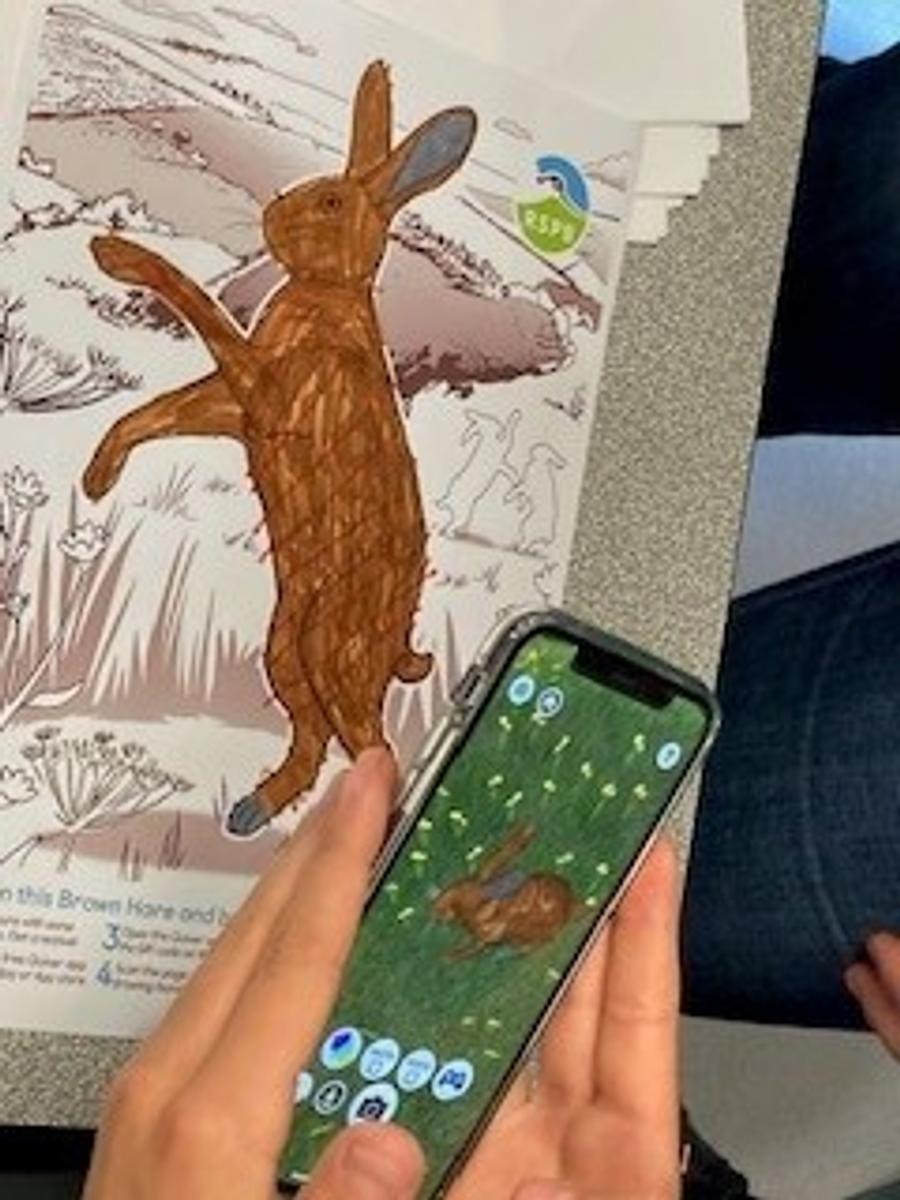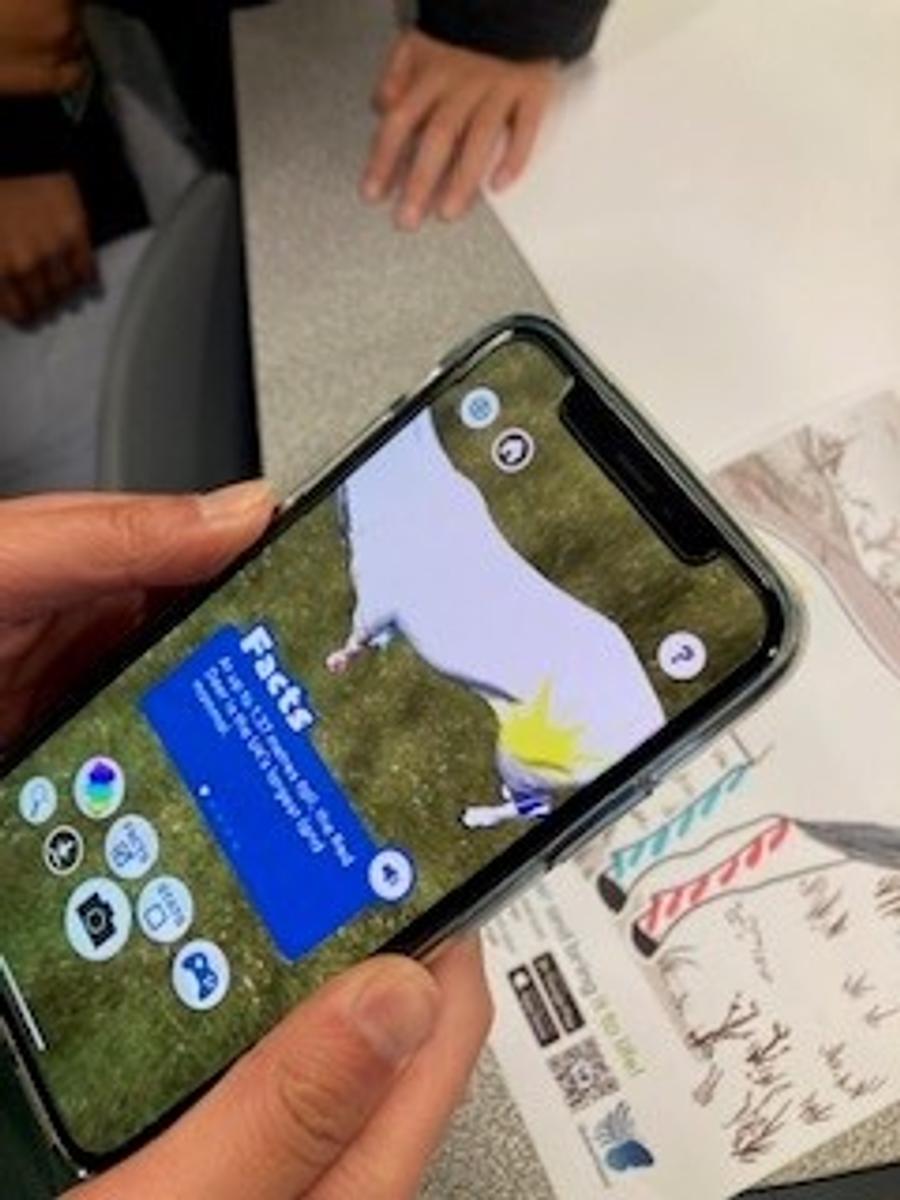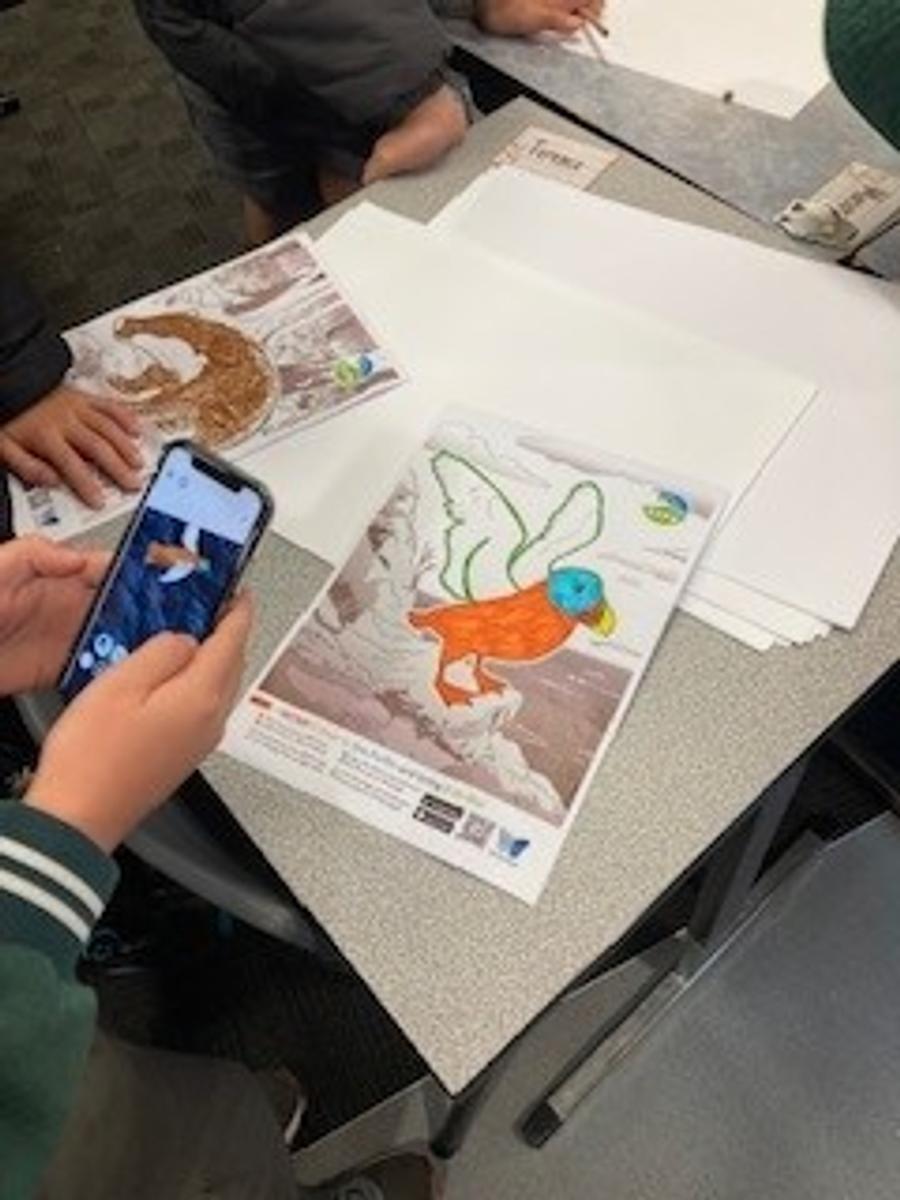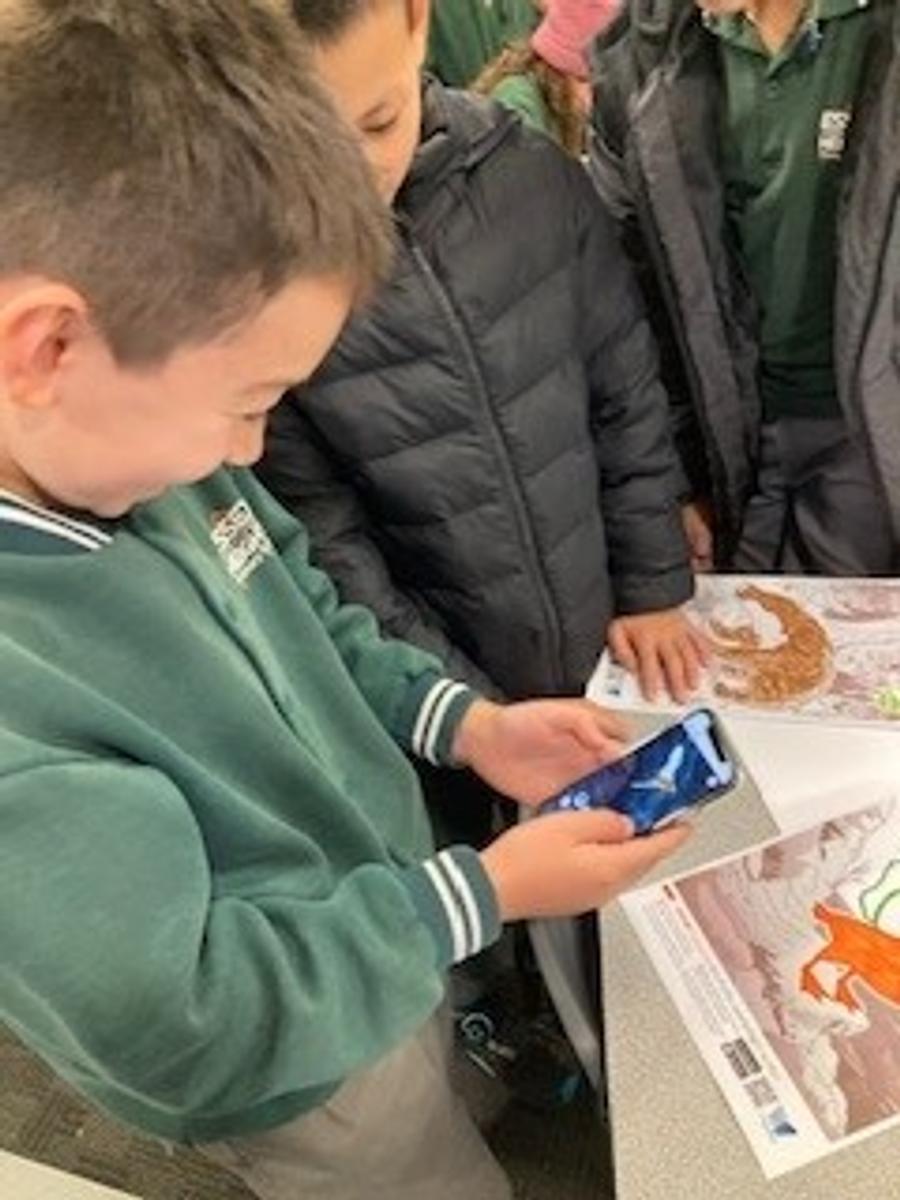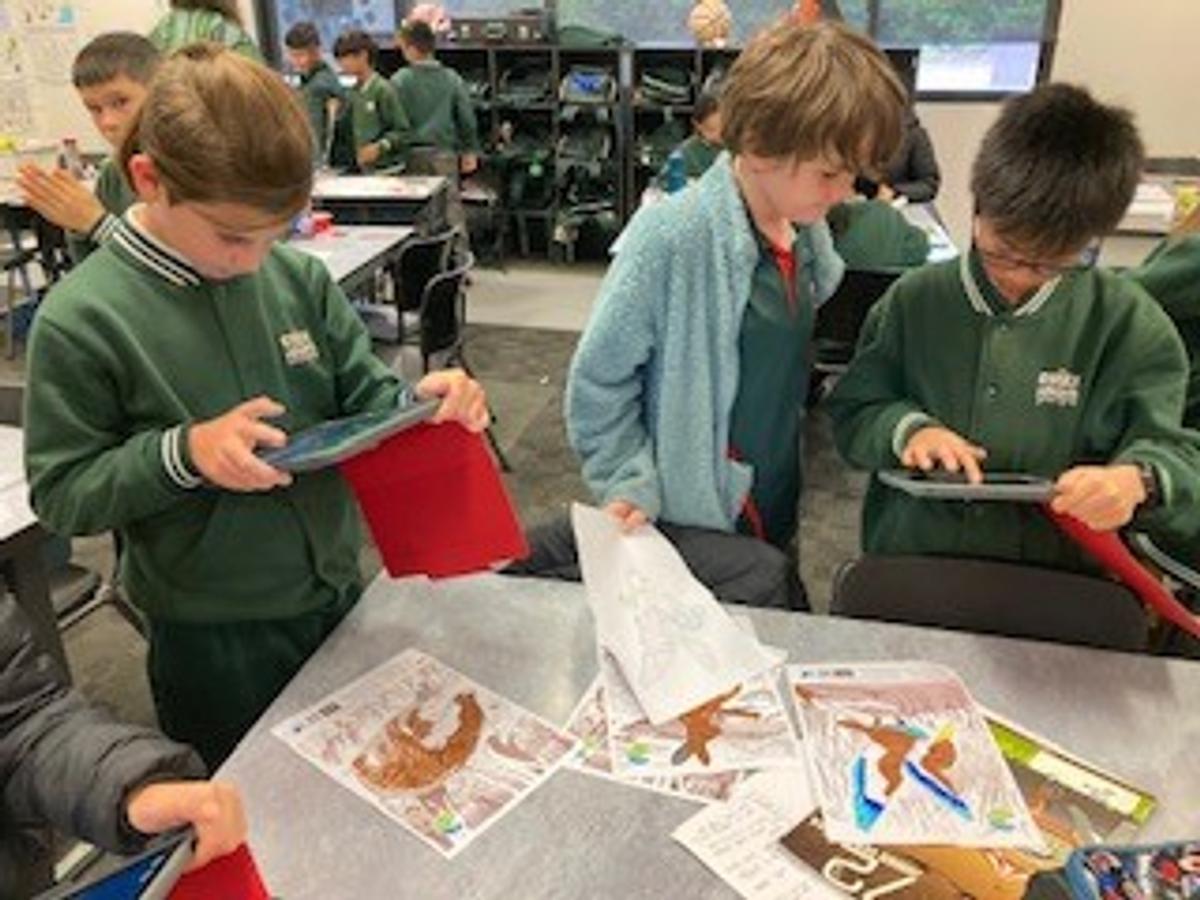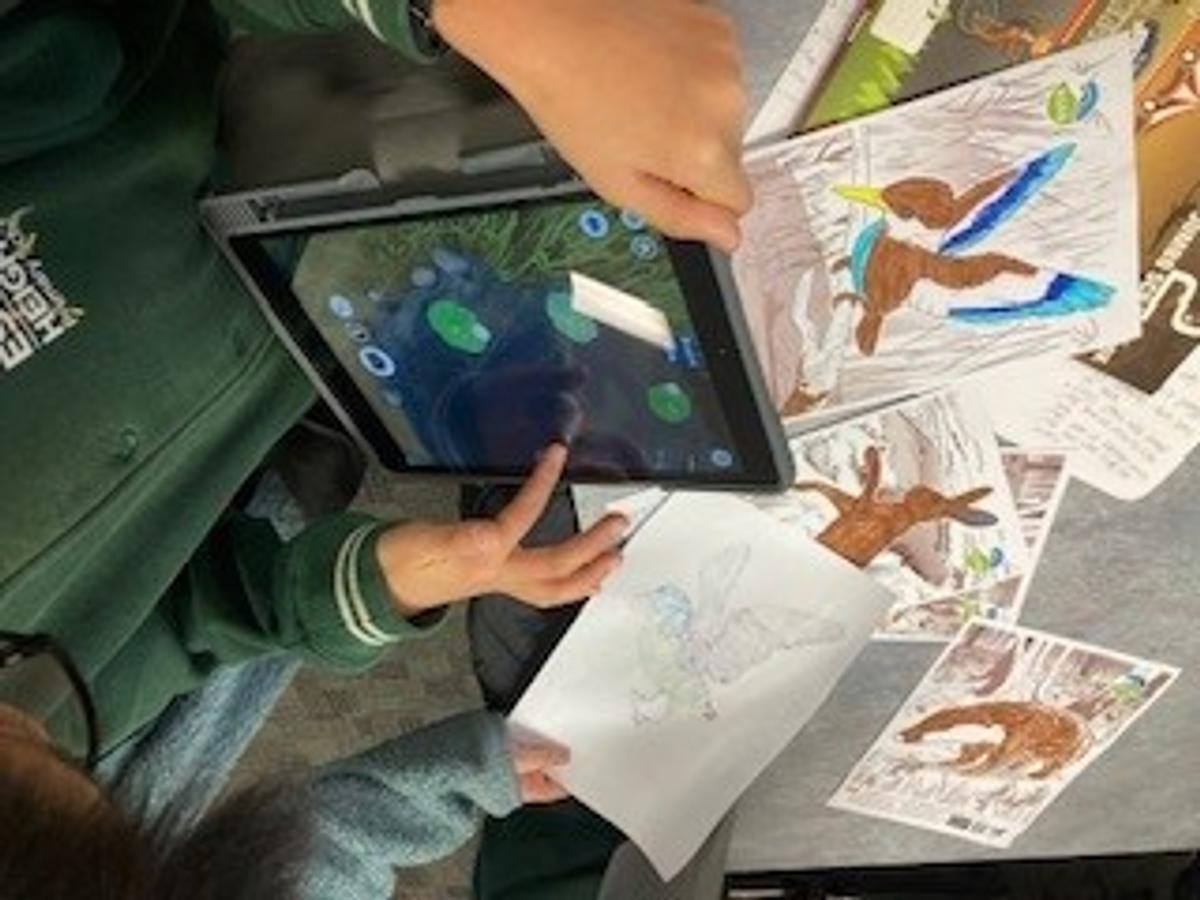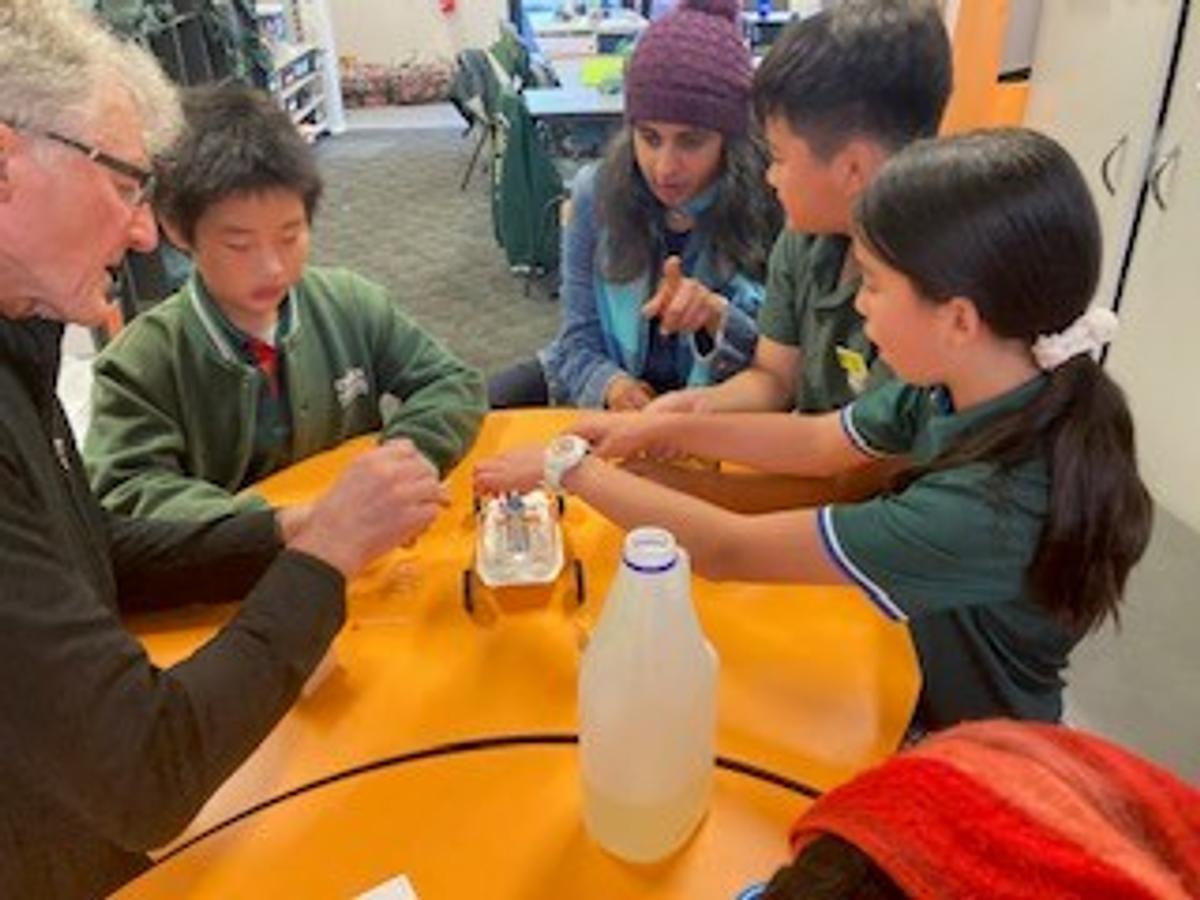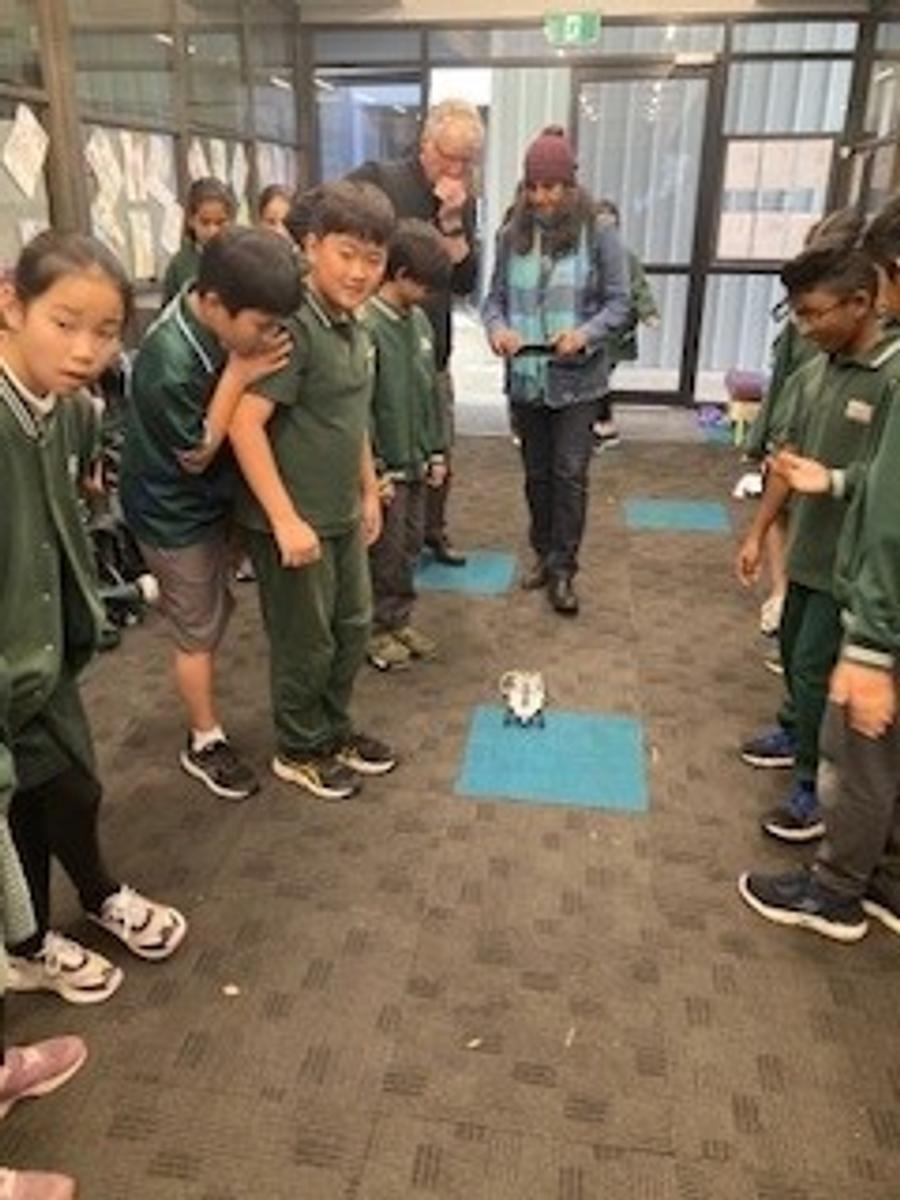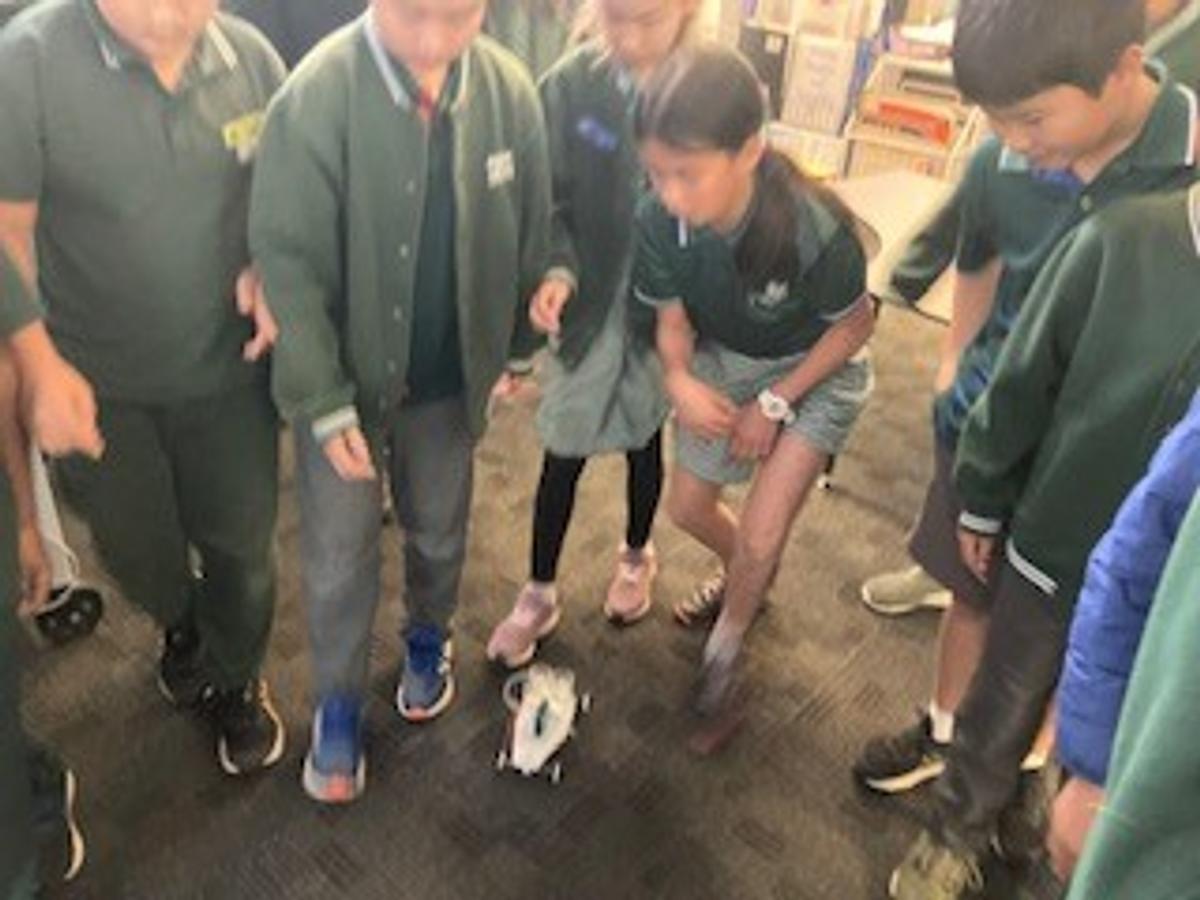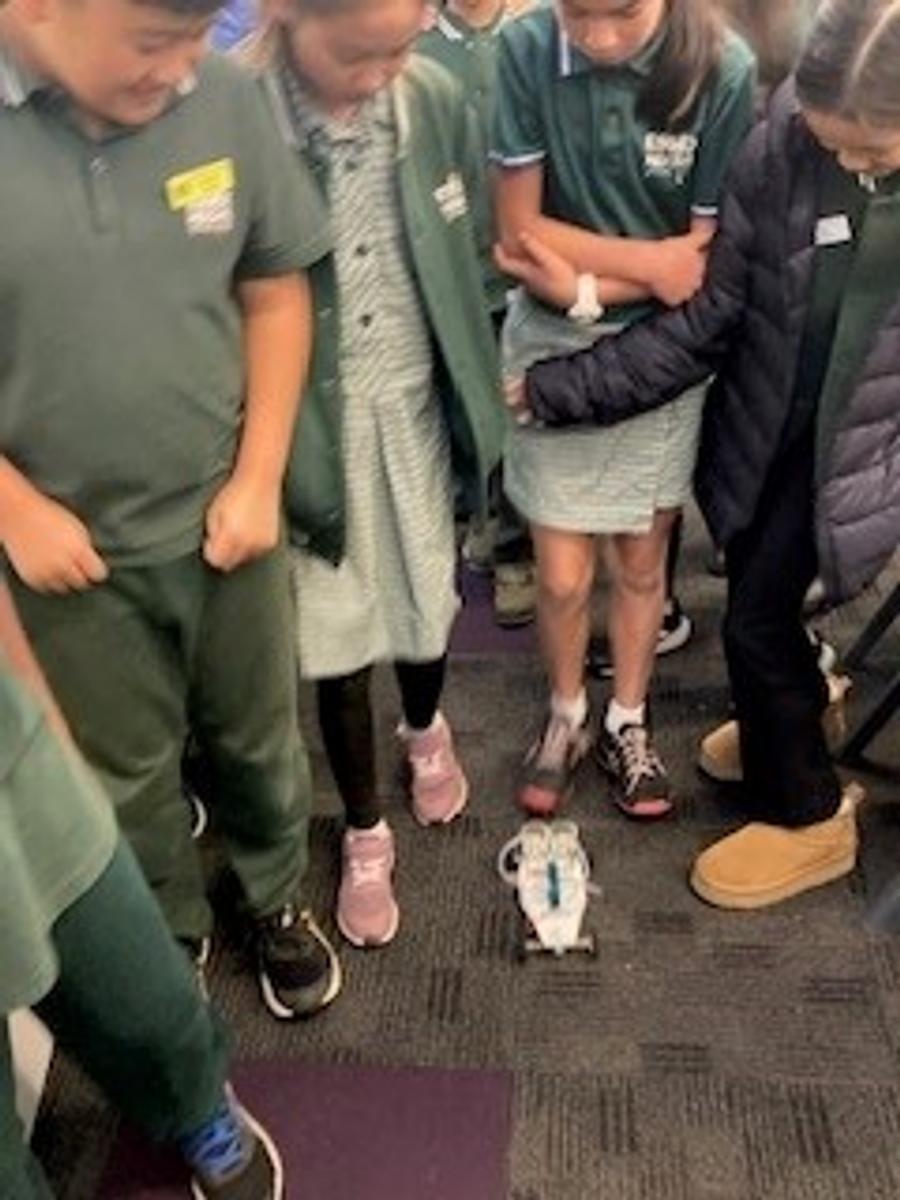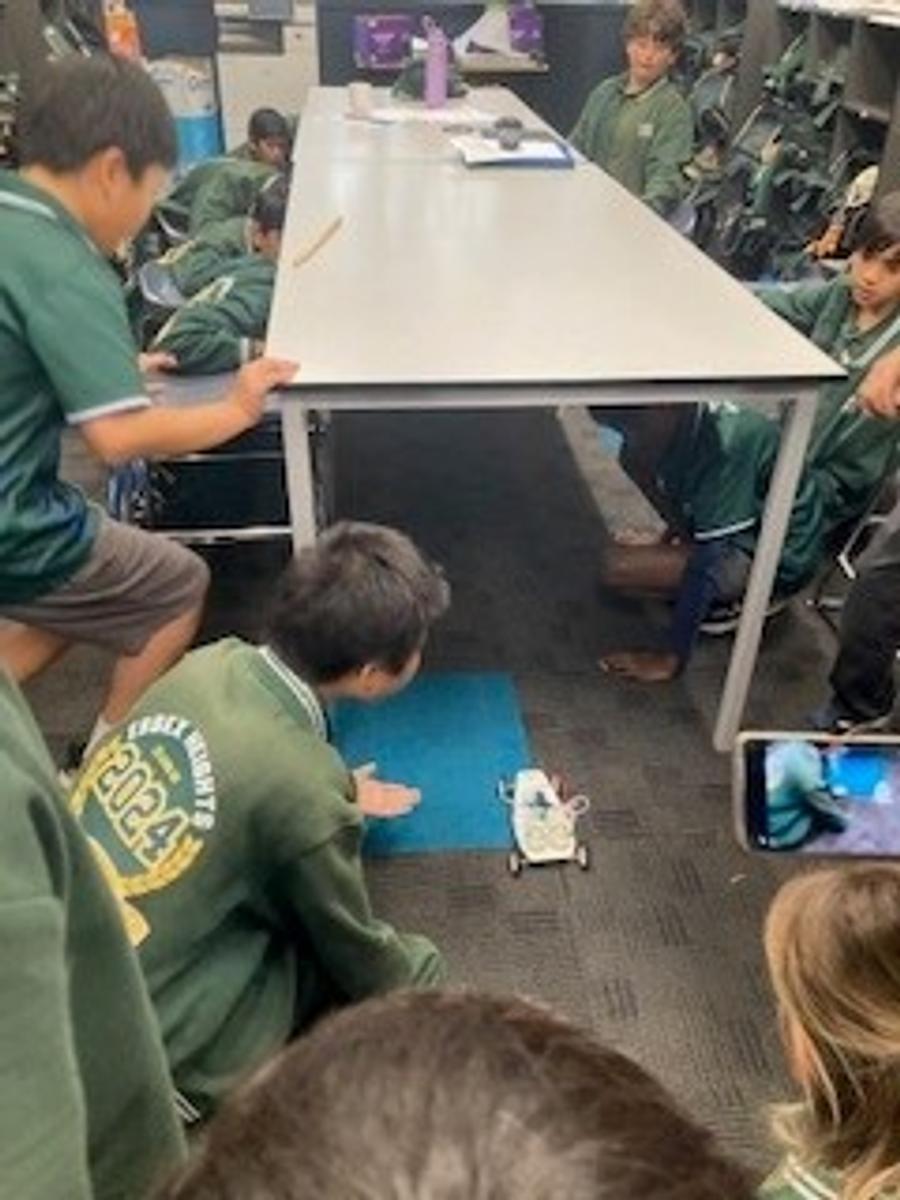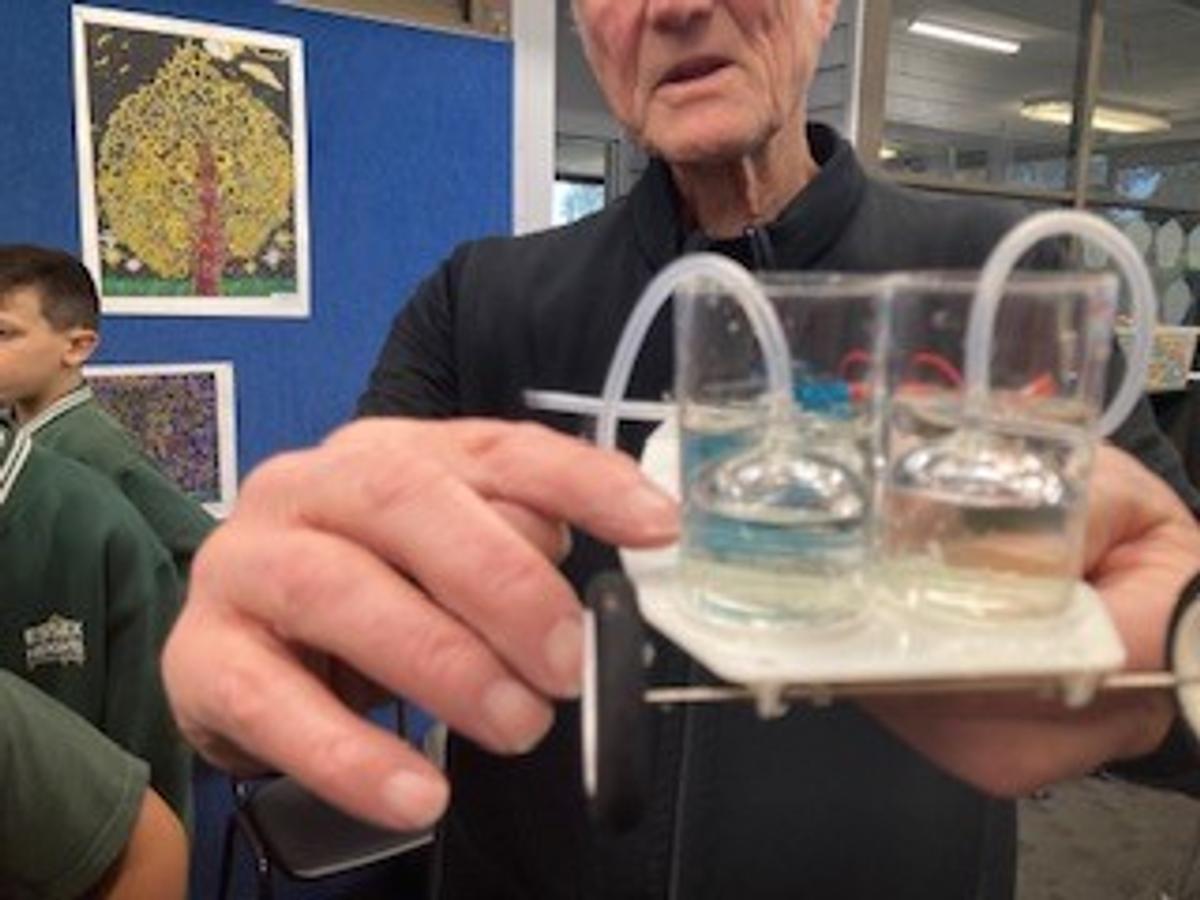Science

Year 5 Deakin Science
During Week 1 of Term 3, students had a visit from Peta and Toya from Deakin Uni who presented the class with a lesson on Augmented Reality. This is the first time the school and students have had a lesson on this state-of-the-art technology in Science.
We used the Quiver App which was downloaded onto the iPads. Students were presented with a variety of animals to choose from. These pictures were coloured in and using the App, enabled the image to ‘come to life’ on the screen. The App also gives valuable and interesting information about the particular animal, such as facts and statistics, games which highlight animals manoeuvrings and typical behaviour, such as foraging. The students really enjoyed the session and learned some valuable information about a range of animals.
Students and their families can download the Quiver App and use this amazing technology at home.
We look forward to using this App to investigate topics in the future.
Maria Capsalis
Science Teacher
Year 6 Science
Last term the students in Year 6 explored Hydrogen as part of their Chemistry theme. In all topics of science this year, planning of lessons involves climate change and its influence on the studies being taught. For example, what may be the impacts of using non-renewable resources such as fossil fuels to provide the earth with energy? What can students do to protect the environment, such as making good choices with appliances and habits and changing to ‘Green” energy. Students are being taught how we can live in a cleaner and healthier world now and in the future.
The students investigated the concept of Electrolysis, which is the process of using electricity to split water into hydrogen and oxygen. It is thereby ready to be used as an energy source to motor vehicles of the future, instead of petrol or gas. This source also emits only pure clean water; no toxic fumes to harm our environment. Deakin Science brought in some Hydrogen Fuel Cell cars which clearly demonstrated the electrolysis component of the energy transfer. The students predicted how far the car would travel and it was exciting to see this new technology in action.
We are privileged to have the expertise and assistance with resources from Deakin to make Science lessons ‘state of the art’ as well as being fun and interesting.
Maria Capsalis
Science Teacher

